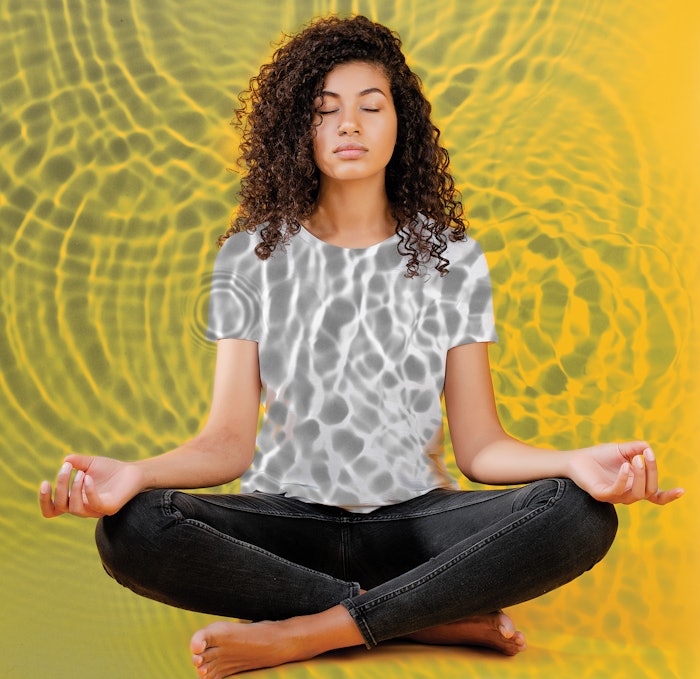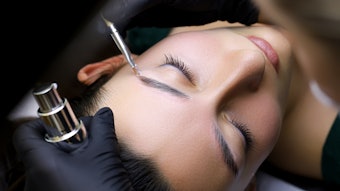
At Shot Bar Medspa in Chicago, we're known for turning heads with skin that stuns. We bring the lasers, the injectables, the science-backed skin care. Here's what we also know: you can invest in every treatment on the menu, but if your nervous system is fried, your results will stall. You can't glow when you're stuck in survival mode.
This article is only available to registered users.
Log In to View the Full Article
At Shot Bar Medspa in Chicago, we're known for turning heads with skin that stuns. We bring the lasers, the injectables, the science-backed skin care. Here's what we also know: you can invest in every treatment on the menu, but if your nervous system is fried, your results will stall. You can't glow when you're stuck in survival mode.
And yes, I say that as both a provider and a patient.
I used to break out chronically on my back; painful, cystic and angry. I tried everything: chemical peels, antibiotics and high-end cleansers. Nothing worked. It was not until I prioritized managing my stress through daily meditation that my skin finally started to heal in a whole different way. That was the turning point. It taught me the truth we often overlook in aesthetic medicine: your skin is listening to your internal state.
The Biochemistry of Stress: What It Does to Your Skin
When you are stressed, your body flips into fight-or-flight. The sympathetic nervous system and hypothalamic-pituitary-adrenal axis (HPA axis) kick into high gear. This cascade releases cortisol, catecholamines like norepinephrine and epinephrine and neuropeptides that directly affect the skin.
According to Graubard, Perez-Sanchez and Katta (2021), this stress response is associated with increased inflammation, itching, delayed wound healing, compromised barrier function and suppressed immunity. In other words, your stress is not just a mood; it is a full-body, skin-wrecking storm.
So, if you are constantly operating in overdrive and wondering why your skin is not responding to treatment, that is your answer. Stress sabotages healing. It slows collagen production. It throws your skin into chaos.
Meditation: The Clinical Reset
Meditation is not a luxury or a woo-woo trend. It is a physiological reset button.
Mindfulness-based practices have been shown to activate the parasympathetic nervous system, your body’s rest, digest and repair mode. This counters the hormonal havoc caused by chronic stress. Mind-body therapies have emerged as valuable adjunctive tools in dermatology, as they reduce both harmful physiological and behavioral effects (Graubard et al., 2021).
A study by Infante et al. (2001) found that people who practiced Transcendental Meditation had significantly lower levels of stress hormones compared to those who did not meditate, showing that regular meditation helps calm the body's stress response.
Lower stress hormones mean less inflammation, more balanced oil production, better skin regeneration and more consistent results from everything we offer at Shot Bar, from PRX to fillers to lasers.
My Favorite Practice: Body Scan Meditation
As someone who lives a high-octane life running a medspa, I don’t always have an hour to unplug, but twenty minutes? I can do that; I prioritize it. My go-to is a guided body scan by a teacher named Davidji called “Deep Healing,” available on the Insight Timer app. It is powerful, grounding, and backed by real science. The practice is based on a Harvard study showing that just 56 days of consistent meditation can begin to rewire your nervous system. Davidji’s version brings that research to life in a way that is approachable and truly transformative. I have seen it improve my skin, reduce my stress and enhance my sleep, and I recommend it to both patients and friends constantly.
The Glow-Up Benefits of Meditation
Here is what regular meditation can do for your skin:
- Reduce inflammation: Less redness, fewer flare-ups, more even tone
- Improve healing: Faster recovery after procedures like Tixel, PRX, Sofwave or microneedling
- Support your barrier: Skin becomes more hydrated, less reactive and more resilient
- Balance hormones: Lower cortisol means fewer breakouts and less oil production
- Improve sleep: Skin regenerates while you rest, and meditation helps you get there faster
Let us not forget the behavioral perks. When you are calm, you pick less, obsess less and are more consistent with your routine.
You Do Not Need a Meditation Cushion
Let me be clear: you do not have to chant or sit in silence for an hour. Meditation can be as simple as a five-minute breathwork session in your car, a walking meditation during your lunch break or a guided visualization during your Celluma light therapy.
It is not about perfection. It is about nervous system hygiene, and just like you cleanse your face daily, your mind deserves that same care. Just. Breathe.
Shot Bar’s Mindfulness Tips for Better Skin
- Start small: Just five minutes a day can make a difference.
- Pair with medical-grade skin care: Meditate while your mask sets or your serum soaks in.
- Use trusted apps: Insight Timer, Calm App or anything by Davidji.
- Think of it as skin care: Meditation is your invisible moisturizer. Treat it that way.
- Track your progress: Your nervous system thrives on routine. Log your practice like you log your macros or water intake.
Final Thoughts: Beauty Starts at the Root
Your skin is not just a canvas; it is a sensor. It tells the truth about how you are living. Meditation gives your body and your skin space to recover. At Shot Bar, we are not just about glow on the outside. We are about healing from the inside out.
So, the next time you are breaking out, feeling inflamed or struggling to see results, pause. Breathe. Scan your body. Turn down the stress dial.
I promise, your skin is listening.
References
Graubard, R., Perez-Sanchez, A., & Katta, R. (2021). Stress and skin: An overview of mind body therapies as a treatment strategy in dermatology. Dermatology Practical & Conceptual, 11(4), e2021091. https://doi.org/10.5826/dpc.1104a91
Infante, J. R., Torres-Avisbal, M., Pinel, P., Vallejo, J. A., Peran, F., Gonzalez, F., Contreras, P., Pacheco, C., Roldan, A., & Latre, J. M. (2001). Catecholamine levels in practitioners of the transcendental meditation technique. Physiology & Behavior, 72(1–2), 141–146. https://doi.org/10.1016/s0031-9384(00)00386-3










